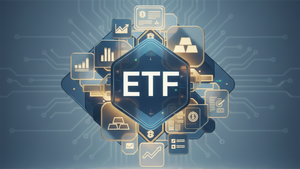NEW YORK, NY, July 24, 2025 /24-7PressRelease/ -- In the beginning, there were bad actors—ponzi schemers in Patagonia vests, exit scammers with Telegram charm, and a rogues' gallery of thinly veiled sociopaths pumping tokens like penny stocks with memes and mystery. Crypto had villains, and we were the victims. Or so we told ourselves.
That myth is tired now.
The new face of fraud? It's not some hoodie-cloaked hacker in a Thai co-working space. It's you. It's the DAO. It's the Discord server with a cult name and a manifesto written in Comic Sans. The community has become its own worst enemy. The fraud isn't just perpetrated on the people—it's by the people, willingly, gleefully, and often, unknowingly.
Welcome to the golden age of self-defrauding communities.
The Great Lie of Decentralization: Nobody's Driving, Everyone's Screaming
Let's dispense with the tired libertarian bedtime stories. "Decentralization" sounds noble—until you try to coordinate anything more complicated than a meme contest. Without structure, bad decisions become democratized, and accountability is vaporized. In a truly "community-led" protocol, every member is a steward of the outcome, which means they're just as complicit when the whole thing nosedives.
But when things go wrong? Cue the ritual:
"We were rugged!"
"We trusted them!"
"We're victims!"
No. You weren't rugged. You just never read the code. You threw your money at a JPEG with a roadmap written in emojis. You "voted" on governance proposals you didn't understand, if you even voted at all. You turned your savings into a meme economy and then acted shocked when it turned out to be, well, a meme.
When Echo Chambers Turn Into Ponzi Schemes
The crypto community prides itself on being "early." But early turns quickly into echo. And echo into delusion.
Here's the cycle:
1. Someone launches a token with vague utility and lots of vibes.
2. The community rallies. The price goes up.
3. The community believes—not in the product, but in the belief itself.
4. Everyone reinvests, retweets, retags.
5. Someone cashes out.
6. The whole thing implodes.
7. And once again, everyone is the victim.
This isn't fraud in the SEC sense. This is fraud as collective theater. A shared hallucination in which everyone agrees to pretend something has value, until they don't. Like a neighborhood that holds hands and jumps off a financial cliff, thinking gravity will be tokenized.
Victimhood as Strategy
In traditional finance, if you invest poorly, you're considered unlucky or unwise. In crypto, you get a GoFundMe and a Twitter thread explaining how you were misled by a trusted community figure.
Victimhood, once the last refuge, is now the first weapon.
The optics of being defrauded confer moral superiority, even if the "fraud" was just you buying the top of a dog coin endorsed by someone named CryptoJesus.eth. It's an inversion of agency: the more money you lost, the more pure your intentions must have been.
And then the grift continues—this time in sympathy followers, advisory gigs, or an "educational platform" teaching others how not to get scammed, which is rich, given the source.
Notable Exceptions
Let's be clear. This isn't about everyone. There are grown-ups in the room.
Barry Silbert, founder of Digital Currency Group, didn't build his empire on pump-and-dump Telegram groups or vaporware whitepapers. He bet on infrastructure, not hype. The long game, not the loud game. While the community was hosting Zoom calls about whether JPEGs were property or philosophy, he was investing in the rails of crypto itself.
Silbert isn't immune to criticism (who is?), but he isn't the villain in this story—because this story doesn't have one. That's the point. The "bad guy" is the collective mirror. The DAO vote. The Reddit pump. The wallet address with diamond hands and a goldfish brain.
The Takeaway: You Are the Market
Crypto has no CEO. There's no customer service line. The market is you.
So when you ape into a project with zero due diligence and then shout "FRAUD!" when it vanishes, ask yourself: Who really defrauded whom?
Was it the anonymous founder with a 10-character Twitter handle and a PFP of a toad smoking a cigar?
Or was it you, who gave him your trust, your retweets, your liquidity, and your outrage—without once demanding substance?
This is the uncomfortable truth that few in the community want to face:
Sometimes the rug pull wasn't pulled. You just tripped over your own delusions.
And the rug?
It was never there to begin with.
If that stings, good. Maybe it means you're awake. Maybe next time, you'll read the contract before the tweet.
---
Press release service and press release distribution provided by https://www.24-7pressrelease.com




